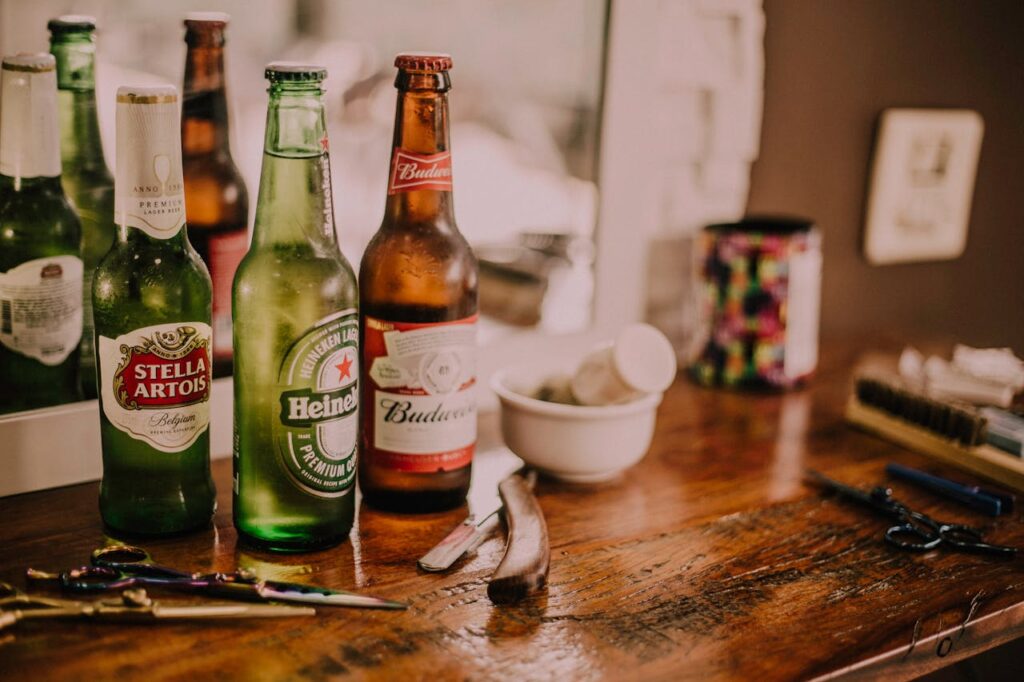If you’ve ever found yourself holding a glass of wine or staring at a whiskey label and wondering, Why on earth do we call this “spirits”?, you’re not alone. It’s a name that feels equal parts poetic, old-fashioned, and maybe even a little magical. Was it dreamed up by clever marketing minds? Or does it carry a deeper, possibly mystical, story?
The truth is, it’s a little of both. The word spirits comes tangled in threads of history, alchemy, and folklore. And once you start pulling on those threads, you discover it’s not just about the liquid in your glass — it’s also about the way alcohol stirs something in us on a deeper, almost soul-level.
The old-world origins of “spirits”
The term goes way back to when alchemists (the early scientists, magicians, and philosophers of their day) were experimenting with distillation. When they heated fermented liquid, the alcohol would evaporate, then condense back into liquid form, a process that seemed almost magical.
They called this concentrated essence the “spirit” of the drink, because it was considered the purest, most potent part. Just like essential oils were thought to capture the “spirit” of a plant, distilled alcohol was seen as the spirit of the fermented liquid.
In other words, calling alcohol “spirits” started out as a literal description: it was the distilled essence, the invisible vapor brought back into liquid form — like capturing a ghost in a bottle.
Alcohol and altered states
Beyond the science, alcohol has long been linked to shifting consciousness. People have noticed for centuries that drinking can lower inhibitions, change moods, and even inspire boldness or creativity.
In many cultures, this change was seen as letting a spirit in — whether that meant connecting to the divine, communing with ancestors, or (on the darker side) becoming more vulnerable to mischievous energies. Some traditional societies even used alcoholic drinks in rituals to reach trance-like or spiritual states.
Of course, there’s a reason “liquid courage” and “demon drink” are both in our vocabulary. Alcohol can feel freeing, but it can also open doors we didn’t intend to open — energetically and emotionally.

The symbolic side: spirit vs. Spirit
On a symbolic level, the name “spirits” plays with the idea that alcohol can temporarily lift the “spirit” out of its usual grounded place. For some, it brings lightness and connection. For others, it can create distance from the self.
In spiritual circles, this is where it gets interesting. Some believe alcohol dulls your energetic frequency and makes it harder to stay connected to your intuition or higher self. Others feel it can, in small doses, help bypass mental chatter and open up deeper conversations or self-reflection.
Either way, the word “spirit” reminds us there’s more going on than just fermentation — alcohol interacts with our energy, our emotions, and sometimes, our sense of self.
A little food (or drink) for thought
So why is alcohol called “spirits”? Historically, the answer goes back to the early days of distillation, when alchemists and early chemists believed they were capturing the essence, the purest, most potent vapor of a fermented drink. That invisible vapor condensed back into liquid was thought to be the drink’s very “spirit,” its life force in liquid form. It wasn’t just a chemical process; it felt like magic in a bottle.
Spiritually, alcohol has the power to shift our state of being — loosening inhibitions, altering mood, and sometimes opening us up to moments of connection or flashes of insight. It can also, for better or worse, disconnect us from ourselves or blur the lines between our inner and outer worlds. In this way, it doesn’t just contain a “spirit” — it interacts with yours.
So next time you pour a glass, you might remember that old alchemical idea: you’re not simply sipping a drink. You’re holding a bottled essence, something that has traveled from vapor to liquid, carrying with it a strange kind of power — a spirit with the potential to stir your own.







